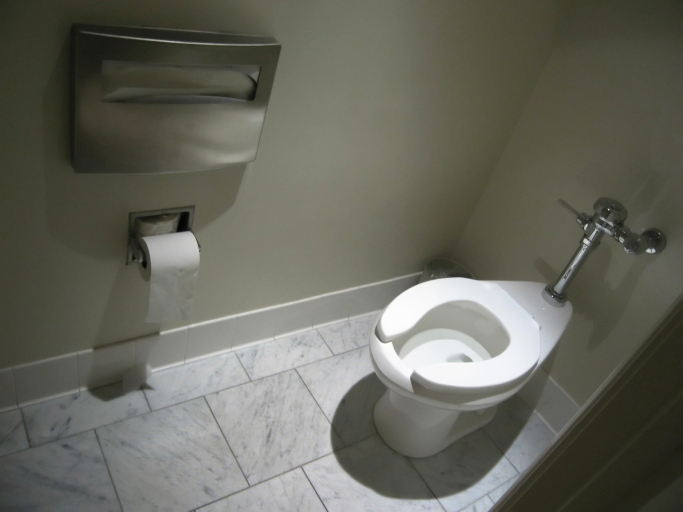
What does it mean to be regular? What does it mean to be constipated?
Most people average a bowel movement somewhere between once a day and three times a week, and constipation is defined as a decrease in your usual number of bowel movements. If you normally go once a day, and you suddenly only go once a week, then you're probably constipated.
What Causes Constipation?
When it comes to constipation, doctors blame not eating enough fruits, vegetables, beans, grains, and other sources of fiber...while eating too many processed foods. Fiber helps move the bowels, but most Americans eat far less than the recommended 20 to 35 g of fiber a day.
Also, women tend to have additional bowel challenges: They often get constipated the week or so before menstruation, because fluids that normally flow to the colon, softening and moving stools, are retained in other parts of the body. Also, hormonal changes during pregnancy and the pressure on the abdomen caused by childbirth often lead to constipation.
If you are experiencing constipation, doctors say that relief can be as simple as eating more fiber-rich foods regularly and being more active.
RELATED: Top 5 Foods That Can Rescue You From Constipation
Preventing Constipation...
Don't skip meals. Dieting women often get constipated because they eat only one large meal a day, says Joanne A.P. Wilson, MD, a gastroenterologist and professor of medicine at Duke University Medical Center in Durham, NC. "Eating stimulates the reflex that causes stuff to move forward in the gut." When nothing moves, you can't pass stool. Breakfast is particularly important because that's what keeps your digestive juices flowing every day.
Eat fruit. Fiber creates soft, mobile stools, says Elaine Feldman, MD, professor emeritus of medicine at the Medical College of Georgia School of Medicine in Augusta. "You don't have to eat a pound of bran a day; just treat yourself to three servings of vegetables and two fruits a day and some whole wheat bread."
Introduce fiber slowly. "Too much fiber too fast may solve your constipation, but it can replace it with gassiness, bloating, and diarrhea," Dr. Feldman says.
Try a supplement. Some women complain that they can't digest that much fiber. If that describes you, or if you're working fiber into your diet, try a fiber supplement such as Metamucil, Citrucel, or Fibercon, says Linda Lee, MD, assistant professor of medicine in the Division of Gastroenterology at Johns Hopkins University School of Medicine in Baltimore.
Drink more water. Drink six to eight 8-ounce glasses of water daily to soften the stool, says Robyn Karlstadt, MD, a gastroenterologist at Graduate Hospital in Philadelphia. Fill an empty 64-oz soda bottle with water and keep it at your desk, then help yourself until it's gone.
Re-establish regularity. Eating, especially in the morning, is a wake-up call to the bowel. Before you rush off to work in the morning, schedule time at home in the morning to attend to your needs. Usually, the bowel is ready to expel its contents about half an hour after the first meal.
Don't strain. Trying to force out hard, dry, recalcitrant stool won't relieve your constipation; it may lead to hemorrhoids and a protrusion of rectal tissue through your anus, also known as prolapse of the rectum, says Dr. Wilson. If you really can't go after 15 minutes, try again later.
Exercise. Exercise stimulates bowel function. However, heavy exercise may cause dehydration, so remember to replenish water loss by drinking plenty of water. Walking, swimming, or doing any other aerobic exercise for half an hour three times a week may be enough to help your bowels (as well as the rest of your body) be healthier.
RELATED: Getting To The Root Of Your Discomfort: Can Fibroids Cause Constipation?
Treating Constipation...
Doctors agree that, except in rare cases, you should do your best to avoid taking chemically-based laxatives. Why? Excessive laxative use is likely to make your bowel lazy, which means that you won't be able to go without help. Even worse, laxatives often set up a vicious circle, in which you are constantly alternating between constipation and diarrhea, and you never have regular bowel movements.
Try a natural laxative. "If you have mild discomfort from constipation because you're traveling and can't get to the gym or eat your fruits and vegetables, try a glycerine suppository, aloe capsules, milk of magnesia, or prune juice," says Dr. Wilson. "Sometimes even a warm cup of broth will help your bowels move more quickly."
Use a footstool. "If you're constipated, propping your feet up on a stool with your knees bent while you sit on the toilet will straighten the angle of your bowel and help you pass [the] stool more quickly," says Jacqueline Wolf, MD, a gastroenterologist and assistant professor of medicine at Harvard Medical School.
When to See a Doctor
Taking medications such as antidepressants or other prescription drugs can cause constipation. If you've recently started a new medication and you're suddenly constipated, see your doctor.
Irregular bowel movements could also point to a food allergy, so it's important to consult with your physician for a blood test to see which foods may be upsetting you.
Also, any of the following symptoms warrant medical attention:
- Blood accompanying a bowel movement
- A change in bowel movements, such as worsening constipation despite home remedies, or alternating constipation and diarrhea
- Fever
- Abdominal pain









